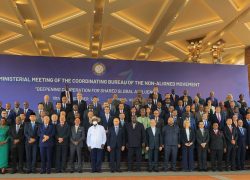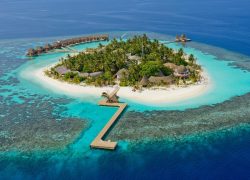A major step has been taken in enhancing the resilience of the Maldives’ coastal communities, with the official launch of a national policy for sustainable shore protection, developed through the collaborative support of the Government of Japan. The initiative reflects a strong commitment to preserving the delicate ecosystems and vulnerable shorelines that are vital to the Maldivian identity, economy, and tourism sector.
This newly introduced policy framework is part of the broader “Climate Resilient Safe Island in the Maldives” programme, a strategic effort to address the escalating challenges of coastal erosion and environmental degradation. The first phase of the project will focus on four islands identified for their susceptibility to shoreline erosion: Gan, Fonadhoo, and Isdhoo in Laamu Atoll, along with Meedhoo in Addu City. The consultancy and engineering components of the initial phase have been entrusted to Japan’s Nippon Koei Co., Ltd., a globally respected firm known for its expertise in sustainable infrastructure and climate adaptation engineering.
The project is being implemented with financial and technical support from the Japan International Cooperation Agency (JICA), aligning with Japan’s long-standing role as a development partner of the Maldives. JICA will fund the technical studies required to prepare detailed engineering designs and tender documents to procure contractors for the project’s execution phase. In addition to the physical works, the project will incorporate environmental impact assessments, capacity-building programs, and long-term shoreline management training for local personnel.
Speaking at the policy launch, the State Minister for Tourism and Environment, Mr. Abdulla Ziyad, emphasized the urgent need for structured, science-based interventions to counter the erosion affecting several inhabited islands. He noted that the project is designed to deliver sustainable, scalable solutions that protect not just the physical landscapes, but the livelihoods and heritage of the island communities.
Mr. Ziyad also highlighted the project’s timeline, stating that the detailed design works are expected to be finalized within six months, with the tendering process for implementation anticipated to begin early next year. This timeline reflects the Government’s commitment to rapid and efficient implementation, ensuring that communities facing immediate erosion threats receive timely protection.
In parallel with the physical interventions, the project includes the development of national-level guidelines to standardize and regulate future shoreline protection and island development plans. These guidelines will play a critical role in ensuring that all future infrastructure and tourism expansion projects across the archipelago consider environmental sustainability and long-term resilience.
The overall programme, supported through collaboration between the Maldives Government, JICA, and the Green Climate Fund, represents a multi-layered response to climate change—one that reinforces the Maldives’ capacity to adapt and protect its pristine natural environment. With over 80% of its landmass less than one meter above sea level, the Maldives is among the world’s most climate-vulnerable nations. Shoreline erosion not only threatens homes and infrastructure but also poses risks to beaches and coastal ecosystems that form the cornerstone of the Maldives’ world-renowned tourism industry.
The involvement of Japan in this vital programme is a continuation of its longstanding diplomatic and development relationship with the Maldives, particularly in the areas of climate resilience, disaster risk reduction, and environmental sustainability. Through technical expertise and financial support, Japan continues to assist the Maldives in achieving its climate adaptation goals, further strengthening the bilateral relationship.
This forward-looking project highlights the Maldives’ proactive approach in balancing economic development and environmental protection. For visitors, investors, and the global community, it reaffirms that the Maldives is not only a breathtaking destination but also a nation taking firm, strategic steps to ensure that its natural beauty and communities remain safeguarded for generations to come.

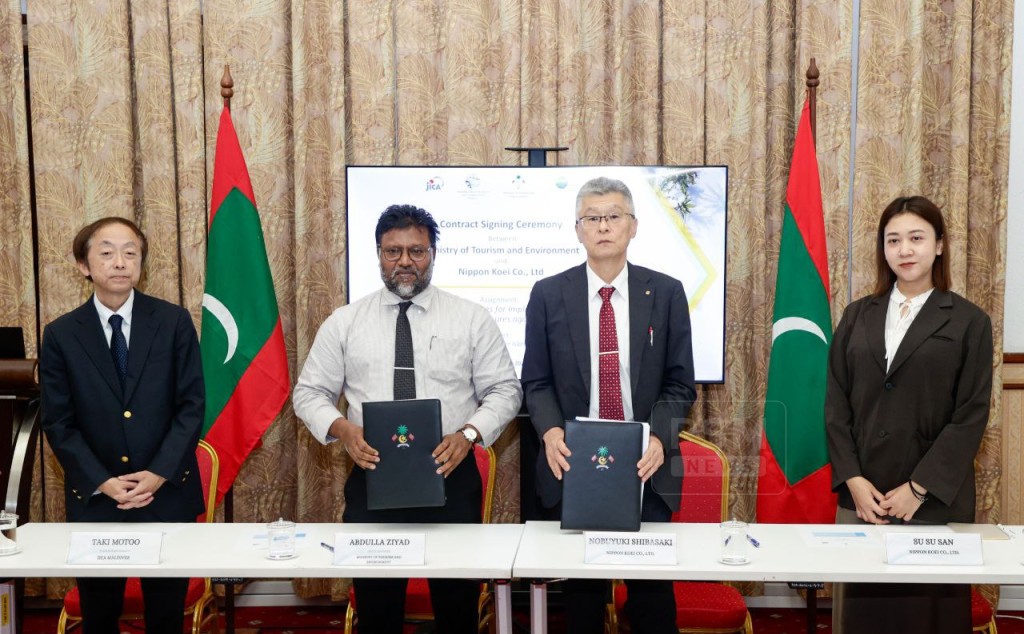

 advertisment
advertisment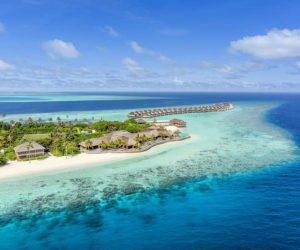

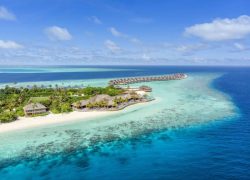


 advertisment
advertisment

